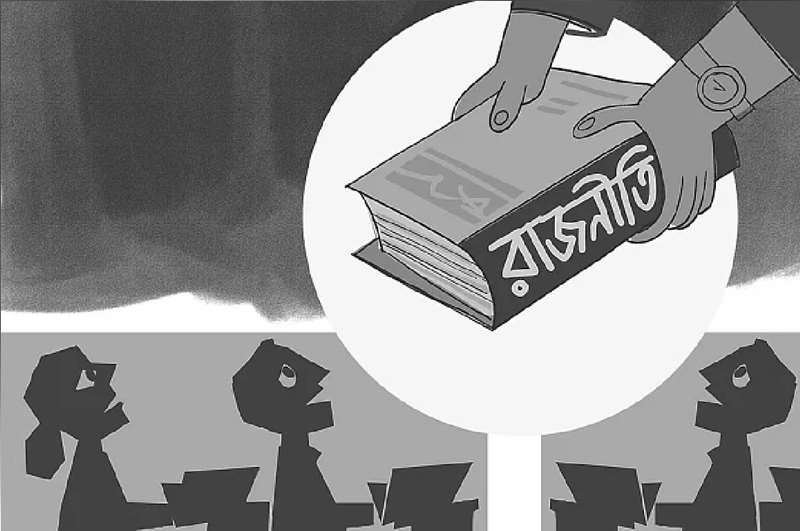Our Student Politics: Ideals and Realities

Student Politics: Ideals and Realities
In recent times, the call to ban student politics on educational campuses has gained momentum, echoing from prestigious institutions like BUET to smaller colleges across the country. This outcry is not merely a symptom of disillusionment but a reflection of deeper societal issues permeating our educational systems. While some argue for the complete eradication of student politics, it's crucial to delve into the root causes behind this demand and explore a nuanced approach towards addressing the concerns.
At the heart of the matter lies the perception of student politics being synonymous with violence, intimidation, and partisan agendas. Instances of misconduct by certain student organizations, particularly those aligned with mainstream political parties, have tainted the reputation of student politics as a whole. When student bodies become mere extensions of political parties, prioritizing party interests over student welfare, it undermines the very essence of democratic engagement within educational institutions.
However, it's imperative to recognize that the essence of student politics lies in advocating for student interests, fostering leadership skills, and nurturing a sense of civic responsibility. The historic language movements and other significant student-led initiatives underscore the pivotal role students can play in shaping societal discourse and driving positive change. Therefore, the solution does not lie in blanket bans but in fostering an environment where student politics aligns with its noble ideals.
Educators, policymakers, and political leaders must collaborate to redefine the role of student organizations within campuses. Transparency, accountability, and a focus on student-centric initiatives should form the cornerstone of any student political engagement. It's essential to empower student leaders to champion causes that resonate with their peers, whether it's advocating for academic reforms, addressing campus issues, or engaging in community service projects.
Moreover, there's a pressing need to disentangle student politics from the grip of mainstream political parties. Student organizations should function autonomously, free from external influence, to genuinely represent the diverse interests of the student body. This requires a concerted effort to depoliticize campuses and create spaces where students from all backgrounds feel empowered to participate in the democratic process without fear of reprisal.
As we navigate these complexities, educators play a pivotal role in shaping the narrative surrounding student politics. Rather than discouraging political engagement, they should encourage critical thinking, civil discourse, and active citizenship among students. By fostering an environment conducive to healthy debate and ideological diversity, educational institutions can become breeding grounds for future leaders committed to upholding democratic values.
In conclusion, the call to ban student politics should serve as a wake-up call for introspection and reform rather than a knee-jerk reaction. By bridging the gap between idealistic aspirations and pragmatic realities, we can reclaim the noble essence of student politics and empower the next generation of leaders to navigate the complexities of our ever-evolving society. Let us not forsake the potential of student politics but instead strive to realize its transformative power for the betterment of our educational institutions and society as a whole.
Mostafizur Rahman,
Publisher and Editor- projonmokantho










পাঠকের মন্তব্য